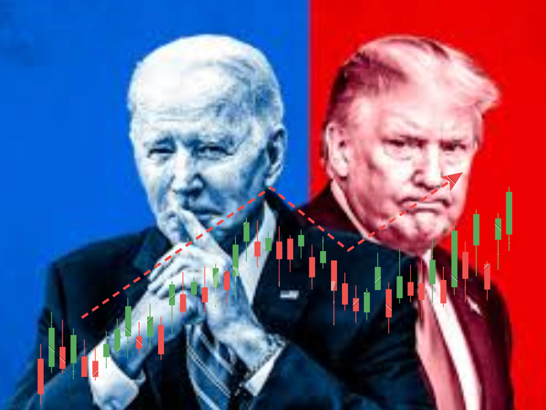The Impact of U.S. Presidential Elections on the Stock Market
2024-06-29

Historical Performance
U.S. presidential elections have historically influenced the stock market, particularly the S&P 500. Since 1928, the S&P 500 has recorded positive returns in 20 out of 24 presidential election years, which is about 83% of the time. The average return during these years was 11.58%, significantly higher than the long-term average of 9.81%.
Increased equity inflows typically occur about six months prior to the election, often resulting in positive monthly returns. For instance, in non-recessionary periods, the average monthly return for the S&P 500 in election years was 0.9%, compared to lower returns during recessionary periods.
Economic Conditions
The performance of the S&P 500 is more closely tied to economic indicators like GDP growth and inflation rather than the election itself. Rising GDP growth and low inflation have historically correlated with higher market returns, whereas declining GDP growth and high inflation have resulted in lower returns.
Political Control
Historical data suggests that the market does not significantly react to single-party control of both the White House and Congress. Instead, certain divided government scenarios have been linked to positive returns, such as Democratic control of the White House with a Republican Congress or split control of the Senate and House.
Volatility and Investor Sentiment
Elections often bring short-term volatility due to uncertainty, but markets typically stabilize post-election as clarity emerges. Experts recommend focusing on long-term fundamentals rather than making drastic portfolio changes based on election outcomes.
2024 Election Analysis
The upcoming 2024 election is expected to be a rematch between President Joe Biden and former President Donald Trump. Each candidate's policy platform could impact different sectors of the market differently. For example, Trump's policies might favor deregulation and tax cuts, while Biden's policies could emphasize infrastructure and renewable energy investments.
Historical trends indicate increased market volatility in the lead-up to elections due to uncertainty about potential policy changes. Investors might see short-term fluctuations driven by poll results and election-related news.
Different sectors may respond variably based on the election outcome. A Trump victory might boost sectors like defense and fossil fuels, whereas a Biden win could benefit clean energy and healthcare sectors.
Overall, while the 2024 election introduces uncertainty, historical data shows that election years typically result in positive returns for the S&P 500. Investors should remain focused on economic fundamentals and long-term strategies rather than short-term political developments.


